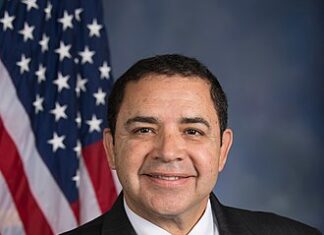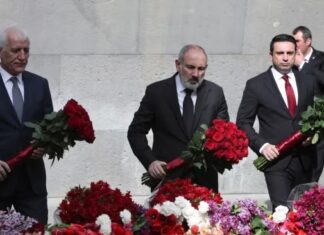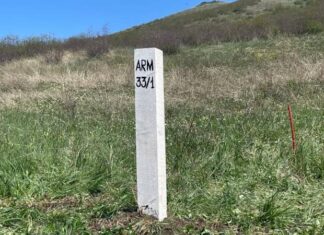I recently saw an Israeli news broadcast that broke my heart three times, and, for a change, it had nothing to do with judicial reform. The average Israeli who saw the same broadcast would have seen it as entirely benign, and even positive and optimistic. The reporter went so far as to insist that it was heartwarming. But to me, this obtuseness and ignorance was heartbreaking.
The reporter was broadcasting live from the Lachin corridor. This is the last remaining road connecting Armenia to the Republic of Artsakh (formerly Nagorno-Karabakh) still controlled by indigenous ethnic Armenians, after they lost control of most of the area in the latest round of fighting in 2020. For the last seven months, the road has been blockaded, first by government-backed Azerbaijani activists, and then by the Azerbaijani military, in violation of the negotiated ceasefire which stipulated that Russian peacekeeping forces would ensure the flow of vital supplies to the 120,000 residents of the Republic. On July 25, the International Committee of the Red Cross issued a statement that residents face a “lack of life-saving medication and essentials”, and expressed concern that the humanitarian situation facing residents will deteriorate. On July 27th, the government of Azerbaijan blocked a convoy of 19 trucks carrying emergency aid sent by the Armenian government.
But none of this developing humanitarian crisis was mentioned by the Israeli reporter. He was too busy getting emotional at the economic and security benefits of the warming ties between Israel and Azerbaijan, a Muslim country that borders Iran, to be bothered by the families that could not feed their children or care for their infirm. This cruelly narrow perspective, which looks at the whole world only from the lens of “good for the Jews”, is heart-breaking on its own. But what broke my heart a second time is the knowledge that this is not only an Israeli sin of omission by one reporter, but a much graver sin of commission of the Israeli government. It is not only a willingness to ignore suffering out of the prospect of our own gain, but the willingness to provide active, essential support to Azerbaijan.
According to the Stockholm International Peace Research Institute (SIPRI) which monitors global arms transfers, Israel provided Azerbaijan with 69% of its arms in the period between 2016 and 2020. During the war in 2020, a senior Israeli military source asserted that “Azerbaijan would not have been able to continue its operation at this level without our support”. The prominence of Israeli drones in the Azeri victory parade confirmed the qualitative edge that Israeli weapons gave Azerbaijan in their quick victory over Armenia. Thus, the current humanitarian crisis in Nagorno Karabakh was enabled by Israeli support.
As an Israeli and a Zionist, I burst with pride when Israelis are first on the scene to provide support for humanitarian crises around the world. That is the global impact I yearn to see. When Israel thinks that it serves its interests by providing weapons to countries that create humanitarian crises, countries that indiscriminately target civilians, and commit grave violations of human rights- it is a heart-breaking violation of our mission.









